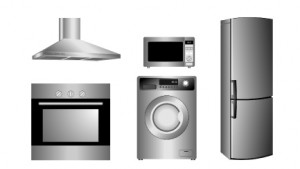Could Your Household Appliances Cause Asthma in Childhood?
 Energy from household appliances, electronic devices, cars and power lines could be responsible for an increase in the number of cases of asthma in children.
Energy from household appliances, electronic devices, cars and power lines could be responsible for an increase in the number of cases of asthma in children.
A study into the effects of electromagnetic fields (EMFs) showed that the children of women exposed to high levels of EMFs during pregnancy were three times more likely to develop asthma than those of women exposed to low levels.
While there is no evidence that high level EMFs cause asthma, it could be a contributing factor.
The effect of mobile phones and wireless networks, which emit higher energy frequencies than those included in the study had not been examined.
There is no evidence that low frequency items, such as a hairdryer or microwave, have any link to childhood asthma.
While the study showed there may be some link between asthma and high level EMFs, there is no evidence to show how they affect the health of the respiratory system.
The study involved pregnant women wearing magnetic field sensors around their waists for a day.
The sensors recorded the magnetic field levels of everything they came into contact with and generated 8,640 readings for each mother and baby.
The sensor measured low frequency magnetic fields from items like fridges, vacuum cleaners, hair dryers, cars, power lines, microwaves and computers.
The women and children were checked regularly for up to 13 years.
Children born to mothers who had higher magnetic field readings had a 350 percent increased risk of developing asthma, while those whose mother had been exposed to low levels developed asthma at rates comparable to the national average.
Other factors that may lead to the development of asthma were taken into account, including family history of asthma, low birth weight and premature birth.
Because you can’t see EMF, it is difficult to avoid exposure to it. Mothers-to-be who are worried about the effect of EMF on their unborn child can avoid the obvious emitters of EMFs where a hand operated tool or device is available.


Comments are closed.